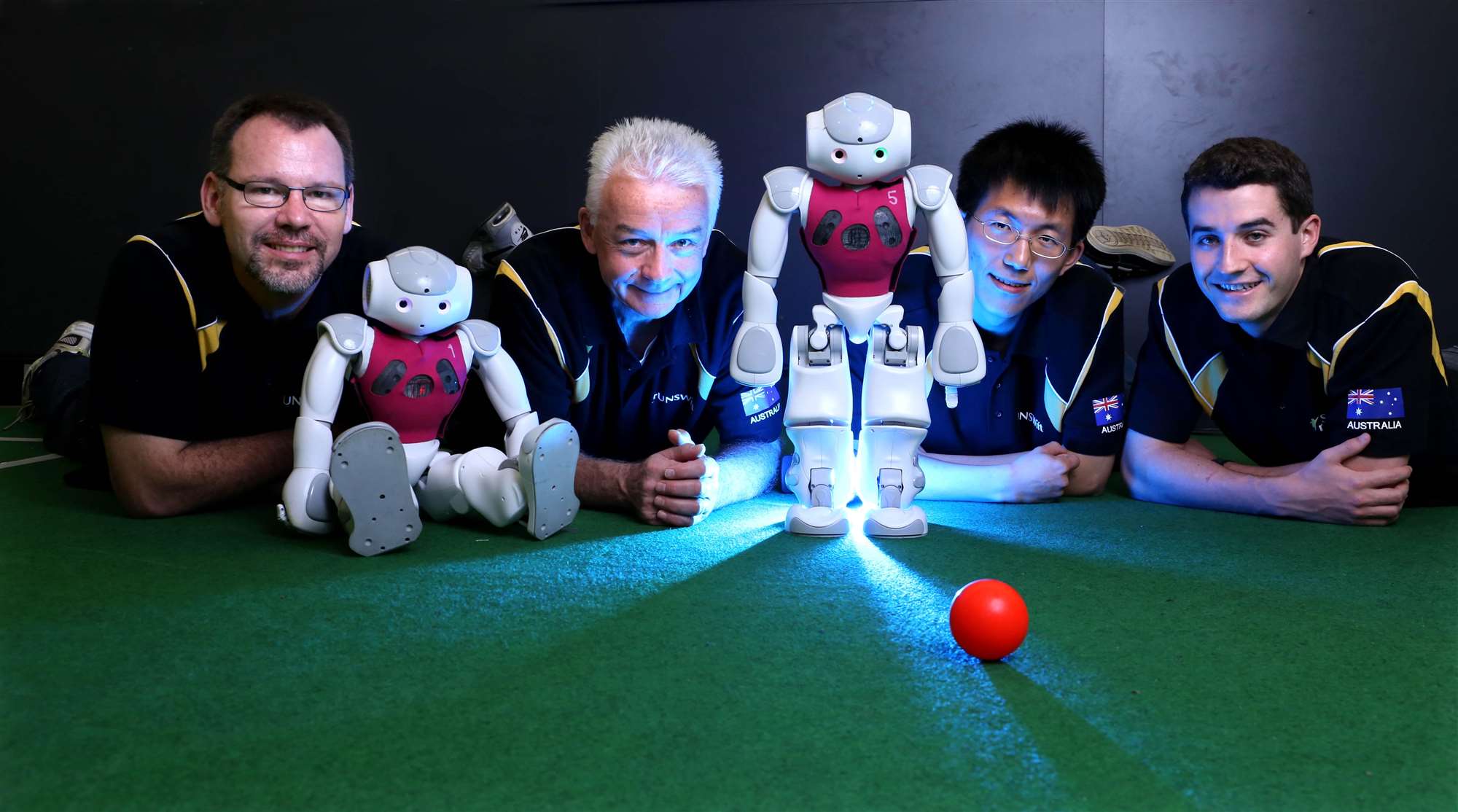Australia has won the right to host the June 2019 RoboCup international symposium and world championship tournament, with as many as 600 teams expected to attend.
The successful bid was made by Business Events Sydney (BESydney) and partners including UNSW Australia, RoboCupJunior Australia (a high school competition circuit) and Bastion Collective.
UNSW have won the RoboCup standard platform league (SPL) world soccer championship for the past two years in a row, beating German teams in both 2014 and 2015.
Robot soccer is the best known activity at RoboCup, but in reality it is just one competition.
There are also separate competitions for robots involved in search-and-rescue, caregiving assistance “and other real-world scenarios”.
In a statement, the winning consortium said the event could add “up to $7 million” to the economy and attract as many as 20,000 spectators.
It is also expected to draw interest from researchers and teams from 50 nations.
On the soccer side, RoboCup ultimately aims to field a team of fully autonomous humanoid robots capable of defeating the World Cup-winning squad in a match governed by FIFA’s official rules. The timeline for this to occur is 2050.
“This is the ‘space race’ of robotics,” said Professor Maurice Pagnucco, Head of the School of Computer Science and Engineering at UNSW.
“Competition pushes advances in technologies. What we learn from robots playing soccer or navigating a maze can be applied to industry and help us solve difficult real-world problems.
“For example, the same vision system developed by UNSW for RoboCup is now being used to track the hands of workers in a saw mill, to ensure the machinery avoids causing injuries.”
Top scientists, engineers welcome STEM focus
The chance to host the event was welcomed by many of Australia’s top scientists and engineers.
"NSW is a leader in robotics research globally, particularly in large-scale field robotics and autonomous systems,” NSW Chief Scientist and Engineer, Professor Mary O'Kane said.
“Australian universities have been enthusiastic participants and supporters of RoboCup, competing in the event every year since its inception in 1997.
“The UNSW team has enjoyed great success – crowned world champions more times than any other team.”
O’Kane also saw the event as a great platform to promote STEM careers.
“Bringing RoboCup to Sydney will significantly boost the profile of robotics here,” she said.
“Perhaps more importantly, it will pique the interest of our children, their parents and teachers in the fields of maths and science, which is tremendously important.”
Australia’s Chief Scientist, Professor Ian Chubb, concurred.
“RoboCup will be a major event for Sydney and will be another way to spark interest nationally in science, technology, engineering and mathematics subjects that are so important to preparing young people for work in a rapidly-changing world,” he said.
Though there are a couple of years between then and now, UNSW President and Vice-Chancellor, Ian Jacobs, welcomed the opportunity for the university to defend its RoboCup record with a home crowd advantage.
“We look forward to competing again in 2019 on home soil, showcasing the outstanding capabilities of UNSW’s computer science and engineering students,” Jacobs said.
The event is slated to be held at the new International Convention Centre Sydney (ICC Sydney) and around the Darling Harbour foreshore.









